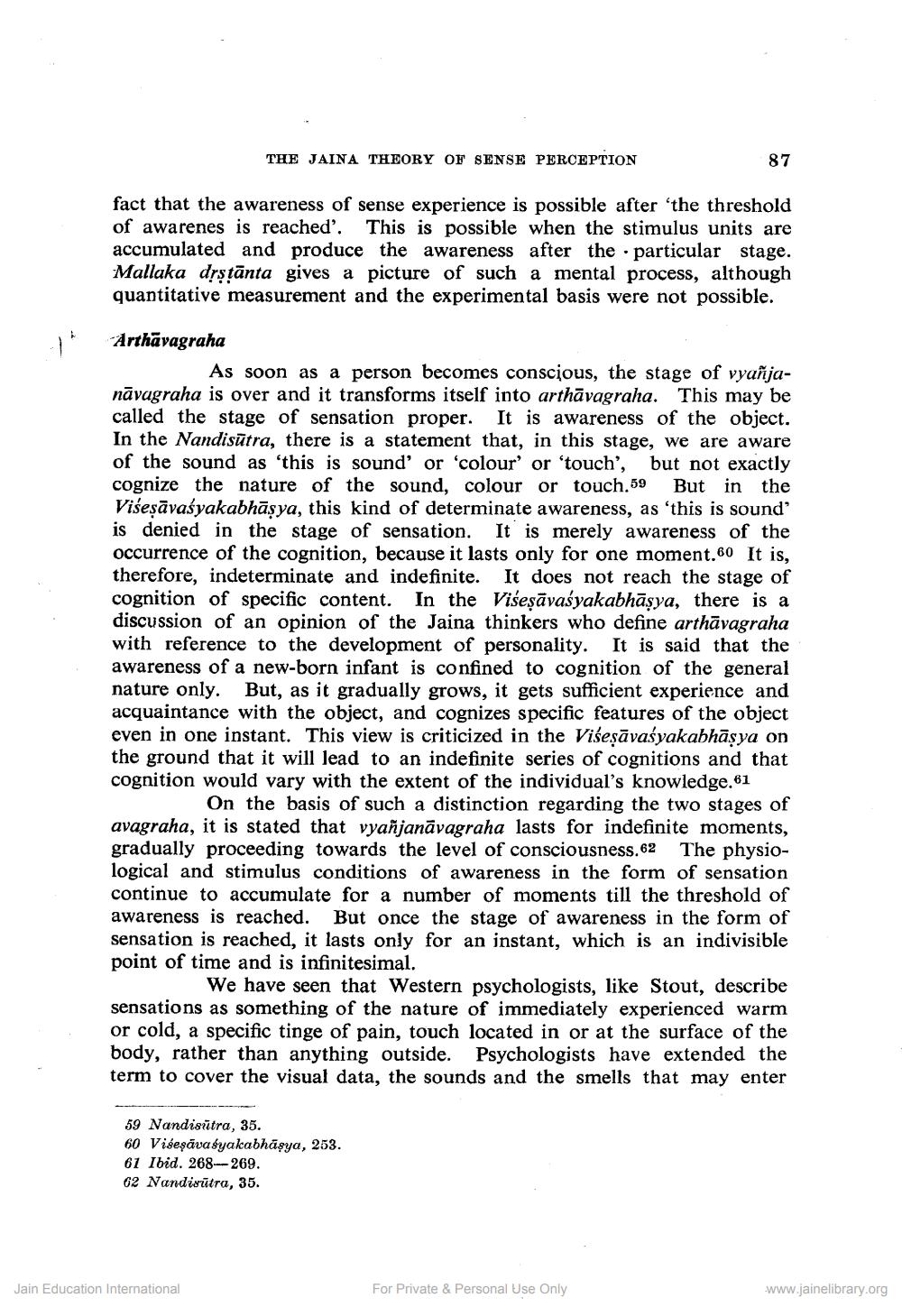________________
THE JAINA THEORY OF SENSE PERCEPTION
fact that the awareness of sense experience is possible after 'the threshold of awarenes is reached'. This is possible when the stimulus units are accumulated and produce the awareness after the particular stage. Mallaka dṛṣṭānta gives a picture of such a mental process, although quantitative measurement and the experimental basis were not possible.
Arthavagraha
As soon as a person becomes conscious, the stage of vyañjanāvagraha is over and it transforms itself into arthāvagraha. This may be called the stage of sensation proper. It is awareness of the object. In the Nandisutra, there is a statement that, in this stage, we are aware of the sound as 'this is sound' or 'colour' or 'touch', but not exactly cognize the nature of the sound, colour or touch.59 But in the Viseṣāvasyakabhāṣya, this kind of determinate awareness, as 'this is sound' is denied in the stage of sensation. It is merely awareness of the occurrence of the cognition, because it lasts only for one moment.60 It is, therefore, indeterminate and indefinite. It does not reach the stage of cognition of specific content. In the Viseṣāvaśyakabhāṣya, there is a discussion of an opinion of the Jaina thinkers who define arthavagraha with reference to the development of personality. It is said that the awareness of a new-born infant is confined to cognition of the general nature only. But, as it gradually grows, it gets sufficient experience and acquaintance with the object, and cognizes specific features of the object even in one instant. This view is criticized in the Viseṣāvasyakabhāṣya on the ground that it will lead to an indefinite series of cognitions and that cognition would vary with the extent of the individual's knowledge.61 On the basis of such a distinction regarding the two stages of avagraha, it is stated that vyañjanavagraha lasts for indefinite moments, gradually proceeding towards the level of consciousness.62 The physiological and stimulus conditions of awareness in the form of sensation continue to accumulate for a number of moments till the threshold of awareness is reached. But once the stage of awareness in the form of sensation is reached, it lasts only for an instant, which is an indivisible point of time and is infinitesimal.
87
We have seen that Western psychologists, like Stout, describe sensations as something of the nature of immediately experienced warm or cold, a specific tinge of pain, touch located in or at the surface of the body, rather than anything outside. Psychologists have extended the term to cover the visual data, the sounds and the smells that may enter
59 Nandisutra, 35.
60 Viseşävasyakabhāṣya, 253.
61 Ibid. 268-269.
62 Nandisutra, 35.
Jain Education International
For Private & Personal Use Only
www.jainelibrary.org




